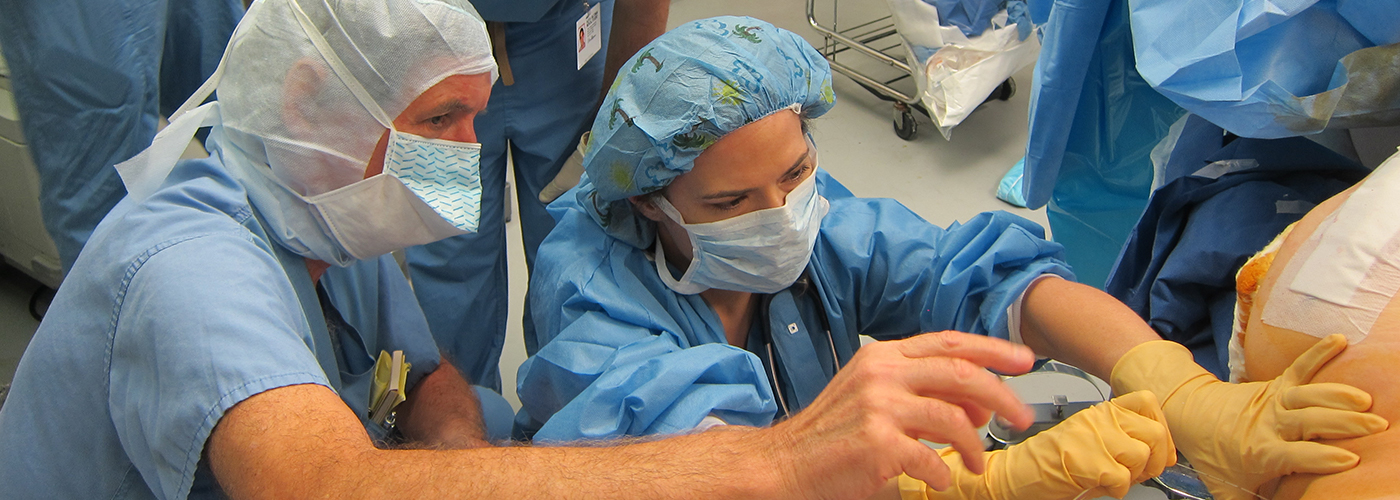Patients & Anesthesia Research
The Department of Anesthesiology, Critical Care & Pain Management is committed to advancing medical knowledge and improving patient care. Medical research is the key to understanding which treatments, medications, techniques, or therapies are safe and effective for patients. Without research, we wouldn’t know that a nerve block improves pain control after foot and ankle surgery; that an epidural is better than general anesthesia for hip and knee replacement; or that patients with obstructive sleep apnea need extra attention after surgery.
These are all examples of clinical studies that have been conducted by researchers in the Department – thanks to the involvement of our patients.
What is a clinical trial?
A clinical trial is a research study. Each study is designed to answer specific questions to find new and better ways to help patients. A clinical trial has a master plan called a protocol that explains how the trial will work, what will be done, why, how many patients will be studied, and what type of data will be collected. If you are asked to participate in a trial, we will discuss the protocol with you, and provide a summary in writing.
Why should I participate?
People decide to participate for a wide variety of reasons. Often, patients want to help others by generating knowledge that will someday benefit patients with the same condition. Sometimes patients decide to join a trial so that they might receive the latest, most innovative care from experts in the field.
What should I expect?
Depending on the purpose of the trial, you may have more tests or medical examinations than you would if you were not taking part. For example, you may have extra blood tests or provide a tissue sample during your surgery. You may be asked to keep a diary about your health or medications, or fill in questionnaires at specified times. Some of these tests or questionnaires may need to be completed days, weeks or even months after your surgery or treatment at HSS!
What are the possible risks?
Clinical trials can have some risks. In general, a new strategy or therapy may not work, or it may not work better than the care we already provide patients. Sometimes a new therapy works for some patients, but not everyone, so it might not work for you. Before you agree to join a trial, your study team will discuss the specific risks (and possible benefits) in detail and you will have a chance to ask questions.
Do I have to do it?
No! Agreeing to participate is voluntary, and if you change your mind at any time, you can drop out of the study. However, please consider participation very carefully: the results of the study can be affected (negatively, in some cases) if patients drop out. We would rather that you say “no,” and be certain than say “yes” if you are uncomfortable doing so, and then drop out later.
How do I know if it’s safe?
Protecting your safety is our priority. At HSS, every clinical study must be approved by our Institutional Review Board (IRB). The IRB is a committee that includes doctors, nurses, statisticians, and community members. The job of the IRB is to provide scientific oversight of all clinical trials. A trial can only be approved by the HSS-IRB if it is deemed medically important, ethical, and protects the privacy and confidentiality of the patients who participate.
Written by Dr. Ellen Soffin, Associate Director of the Clinical Research Division within the Department of Anesthesiology, Critical Care & Pain Management.
Back to Department of Anesthesiology, Critical Care & Pain Management


